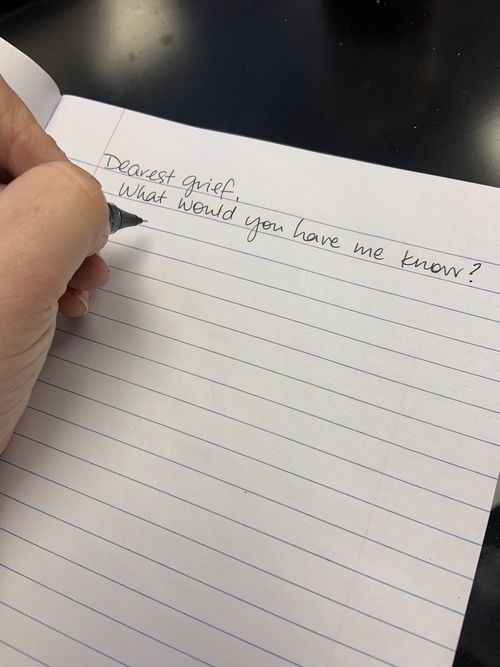
Here’s something you may not have thought about: Writing is a stimulating yet strenuous activity for the brain. When you write, all parts of your brain are actively engaged, and because the brain can adapt to change with neuroplasticity, it can be useful to process difficult emotions such as grief.
In her book, The Grieving Brain, Mary-Frances O’Connor explores the important process of grieving, from the perspective of the brain, explaining that when grieving, our brains have to rewire and relearn what it’s like to live in a world without a loved one or with a massive change in our lives. Our brains work hard in grief to recreate a life full of meaning without the person that we love.
Writing can help our brains to do some of this work, and we have a few exercises that may help you to begin the process.
1. Morning Pages (for Grief) – this is a discipline developed by Julia Cameron, author of the classic how-to on creative recovery, The Artist’s Way decades ago, and it lends itself beautifully to processing grief. The idea is that first thing in the morning, one writes, by hand, three pages in a notebook. Julia recommends using a standard-size lined book and a pen to write a stream-of-consciousness entry in as long as it takes to produce three pages. The rules are that you don’t read over or edit what you’ve written, and you don’t worry at all about what you are writing in terms of content; just free your thoughts and let them roam, even if it means you write “I have nothing to write…” for three pages.
This can be a beautiful and meditative practice. It can clear the grief from our minds and free us to heal and feel nuances of it as we go. If it’s not possible to do it in the morning –sometimes life has other ideas for us, particularly if we have little ones or an early start, so you can be flexible in when you do them. Julia Cameron stresses that the point is to do them, even if it’s not in the morning.
2. A date to journal with grief – this is one of Tara’s favourite suggestions and it is to create a date with your loved one you are missing—make a cup of tea, eat a food they enjoyed, light a candle and invite their memory in. In your journal, write one of these two prompts:
“[Loved one,] what would you like me to know?
or
“Grief, what would you like me to know?”
After you ask, you write, allowing your hand to serve as instrument for what comes, allowing your tears to flow and your truth to appear on the page.
3. Take an inventory. This is for folks who have perhaps a longer grief journey behind them, with some time to reflect on. Use a calendar or diary to help you and look back on all that’s happened since the death of a loved one. It can feel heavy and awful, but you may surprised to see that when it was hard, there was also resilience and perseverance. You may discover that you have continued to live in a way that surely seemed impossible at some point. It can be a powerful exercise.
These writing invitations may support you in exploring and being near to your grief as you heal, and if you feel that you can use some additional supports, please do book some time with one of our counsellors for some one-on-one help.
Happy Writing to you.

